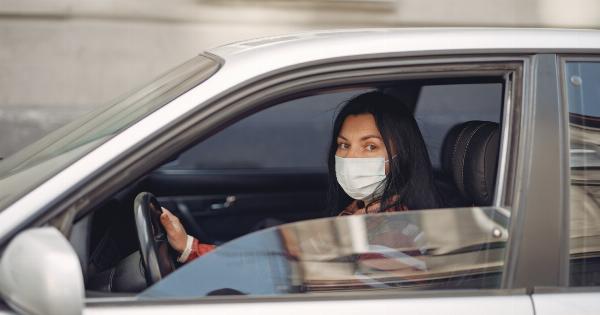Many people experience feelings of sickness while traveling in a car, whether it’s during short trips or long journeys.
This condition, also known as car sickness or motion sickness, can be caused by various factors such as inner ear disturbances, sensory mismatches, or focusing on a fixed point for an extended period. Fortunately, there are several strategies and remedies that can help you prevent or alleviate car sickness. In this article, we will discuss ten effective methods to avoid feeling sick in the car.
1. Choose the Right Seat
The position you sit in the car can significantly impact your susceptibility to motion sickness. Sitting in the front seat, preferably as a passenger, allows you to have a clear view of the road ahead and better perceive the car’s movements.
Avoid sitting in the backseat or facing backward, as both of these positions can heighten the risk of motion sickness.
2. Focus on the Horizon
Keeping your gaze fixed on the horizon can help alleviate car sickness symptoms.
By directing your eyes to a stable point far in the distance, like the road ahead, you provide a reference point that aligns your visual and sensory perceptions, reducing the sensory mismatch that often leads to feeling sick.
3. Limit Head Movements
Excessive head movements, such as constantly turning your head to check for traffic or looking down at your phone, can exacerbate car sickness. Try to keep your head as still as possible and avoid activities that involve rapid head movements.
If you need to look at something, like a map or a phone, tilt your eyes instead of moving your entire head.
4. Maintain Adequate Airflow
Airflow can help prevent or alleviate car sickness by providing fresh air and aiding in balancing the temperature within the vehicle.
Opening a window, using the car’s ventilation system, or pointing the air vents towards your face can improve air circulation and reduce the sensation of nausea or discomfort.
5. Avoid Heavy Meals and Strong Odors
Eating a heavy meal before or during car travel can increase the likelihood of feeling sick. Digestion requires energy, and when you’re on the move, the body’s resources are divided between digestion and maintaining balance.
Opt for lighter snacks and meals that are easier to digest. Additionally, strong odors, such as those from perfumes or food, can trigger or worsen motion sickness. Keep the car well-ventilated and avoid odors that may be bothersome.
6. Take Breaks and Stretch
Long periods of time in a stationary position can contribute to motion sickness. When on a long journey, schedule regular breaks to stretch your legs and rest your eyes.
Getting out of the car, taking a short walk, and focusing on objects in the distance can help reset your senses and reduce the chances of feeling sick.
7. Try Acupressure
Acupressure, a traditional Chinese medicine technique, involves applying pressure to specific points on the body to relieve various ailments.
Applying pressure to the Nei Guan point, located on the underside of your wrist, between the two tendons, can help alleviate nausea and suppress the symptoms of motion sickness. There are also acupressure wristbands available that provide continuous pressure to this point.
8. Use Aromatherapy
Aromatherapy can be a natural and soothing way to prevent or reduce car sickness. Certain essential oils, such as peppermint or lavender, can help alleviate nausea and promote relaxation during travel.
You can either inhale the oils directly or use a diffuser in the car to disperse the scent.
9. Stay Hydrated
Dehydration can intensify the symptoms of car sickness. Make sure to drink an adequate amount of water before and during your journey. Staying hydrated helps maintain overall well-being and can reduce the likelihood of feeling sick during car travel.
10. Consider Medication
If all else fails and you continue to suffer from severe car sickness, over-the-counter medications or remedies specifically designed to treat motion sickness can be considered.
Antihistamine medications, like dimenhydrinate or meclizine, can reduce symptoms of motion sickness, but it’s advisable to consult with a healthcare professional before taking any medication.





























